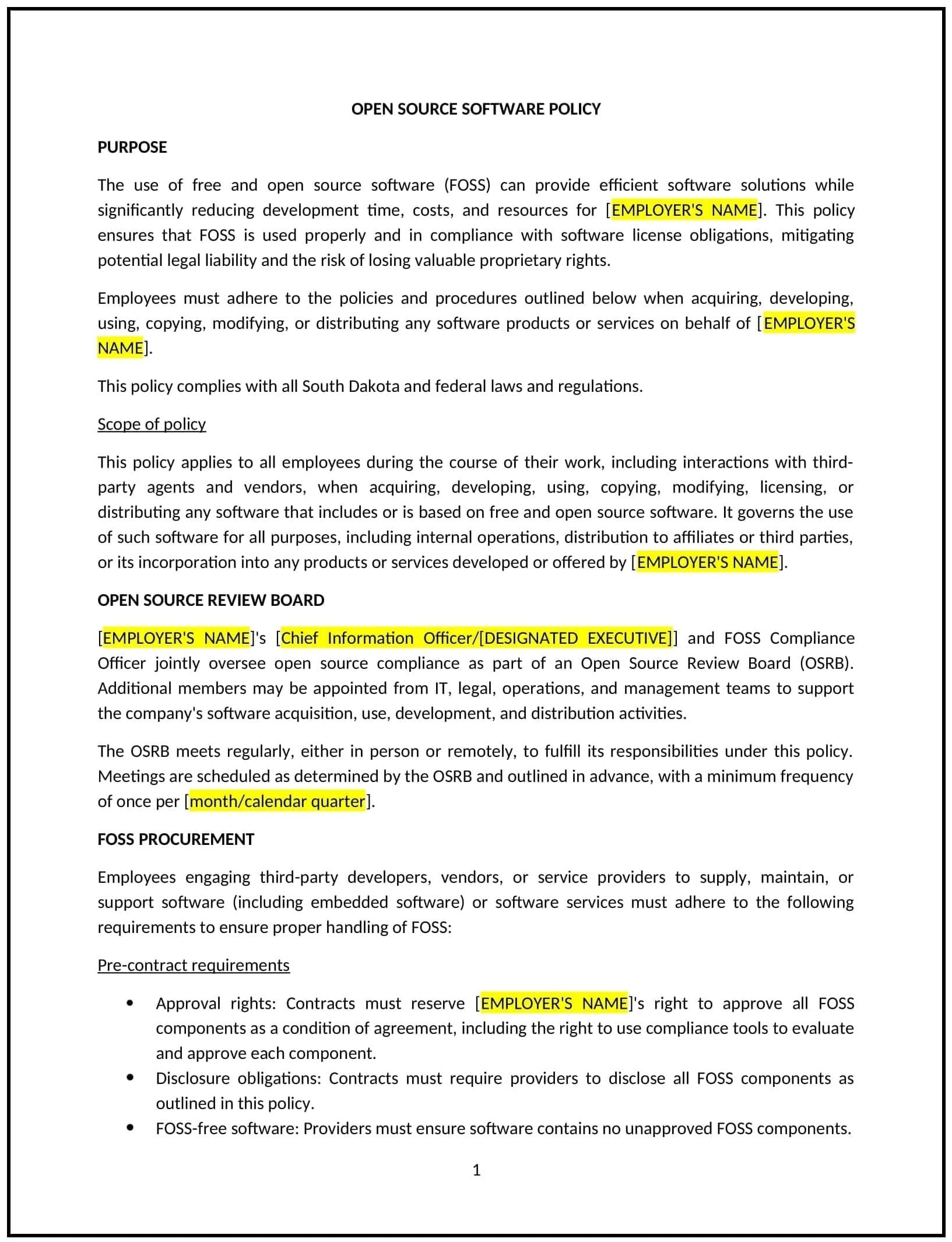Open source software policy (South Dakota): Free template
Got contracts to review? While you're here for policies, let Cobrief make contract review effortless—start your free review now.

Customize this template for free
Open source software policy (South Dakota)
This open source software policy is designed to help South Dakota businesses establish guidelines for using, contributing to, and managing open source software. It outlines procedures for evaluating, approving, and maintaining open source software in business operations.
By adopting this policy, businesses can promote innovation, reduce costs, and align with general best practices for software management.
How to use this open source software policy (South Dakota)
- Define open source software: Explain what constitutes open source software, including its licensing and usage terms.
- Establish evaluation procedures: Specify steps for assessing open source software, including security, licensing, and compatibility.
- Set approval processes: Outline how open source software will be approved for use, including documentation and stakeholder input.
- Address contribution guidelines: Provide rules for contributing to open source projects, such as code reviews and legal approvals.
- Train employees: Educate staff on the policy and their responsibilities when using or contributing to open source software.
- Monitor implementation: Regularly review open source software usage to ensure adherence to the policy.
- Review and update: Assess the policy annually to ensure it aligns with evolving business needs and software trends.
Benefits of using this open source software policy (South Dakota)
This policy offers several advantages for South Dakota businesses:
- Promotes innovation: Encourages the use of open source software to drive creativity and efficiency.
- Reduces costs: Provides access to free or low-cost software solutions, lowering operational expenses.
- Enhances transparency: Demonstrates a commitment to ethical and responsible software usage.
- Builds trust: Shows employees and stakeholders that the business values innovation and collaboration.
- Supports best practices: Aligns with industry standards for managing open source software.
Tips for using this open source software policy (South Dakota)
- Communicate the policy: Share the policy with employees and include it in training materials.
- Provide training: Educate staff on the importance of evaluating and managing open source software.
- Monitor implementation: Regularly review open source software usage to ensure adherence to the policy.
- Address issues promptly: Take corrective action if open source software is used improperly or without approval.
- Update regularly: Assess the policy annually to ensure it aligns with evolving business needs and software trends.